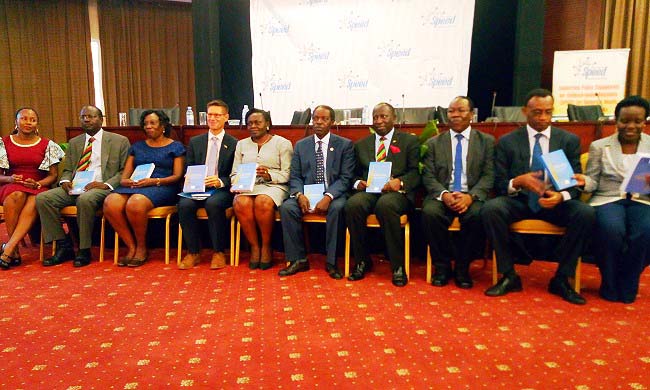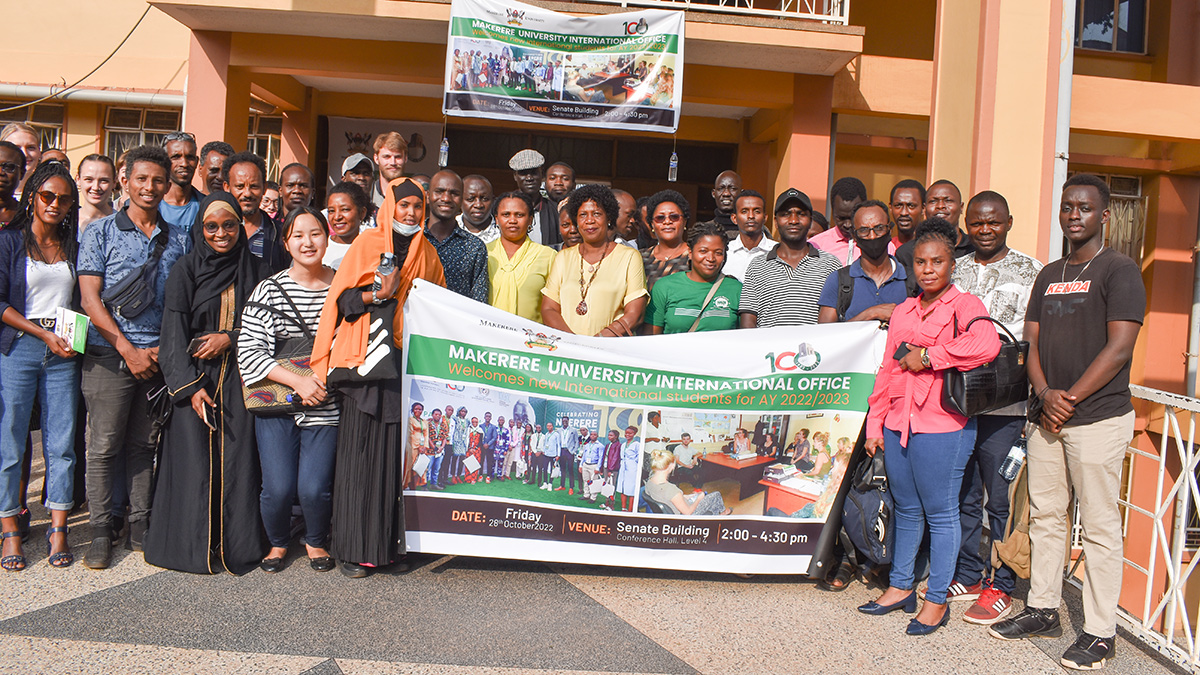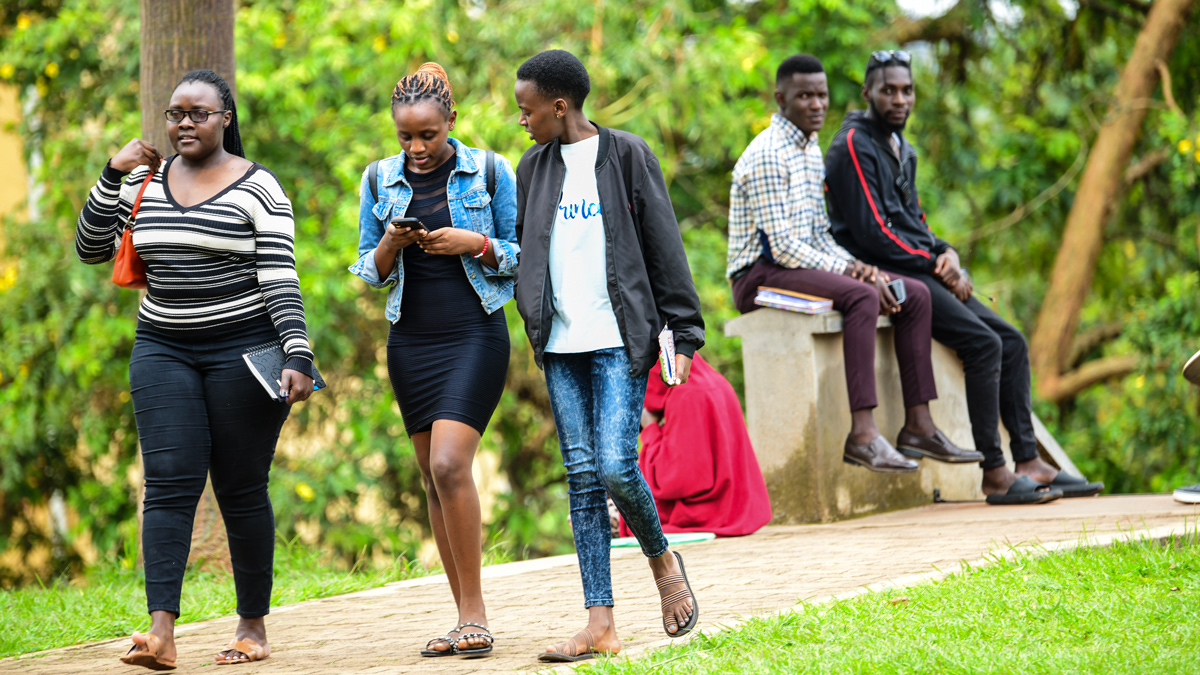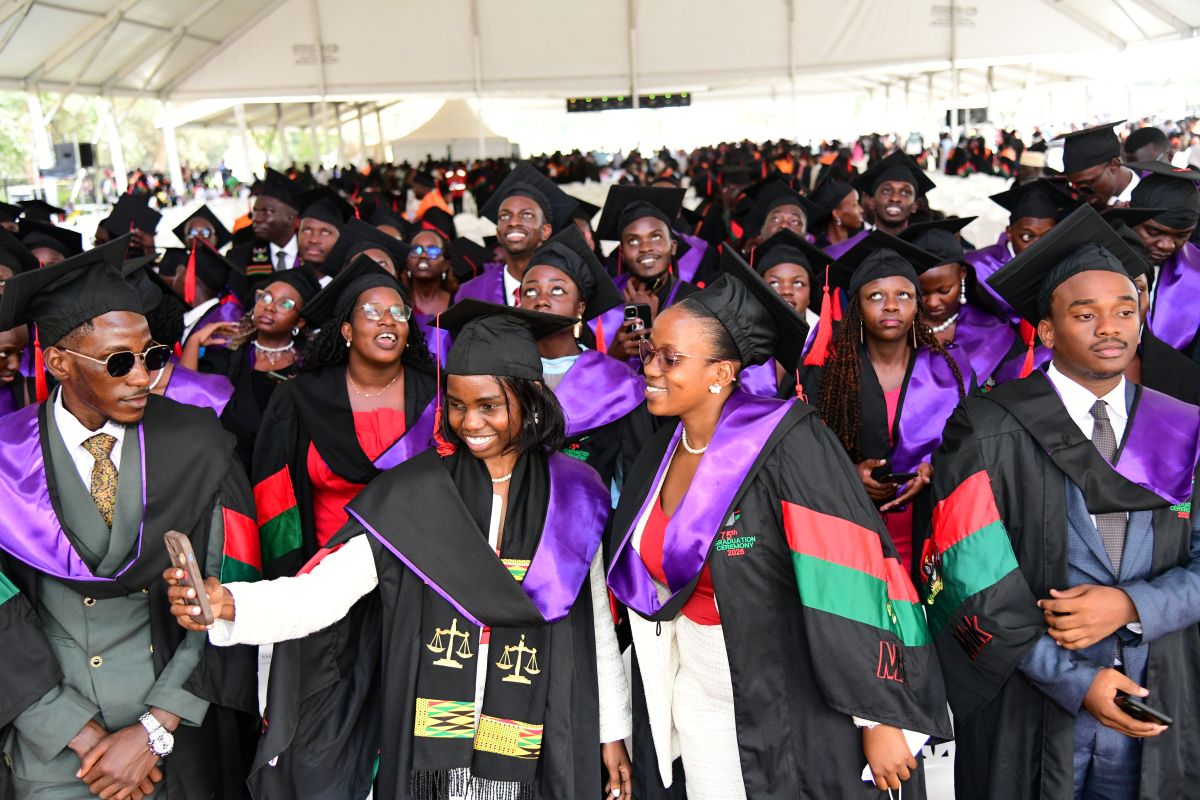She was astonished to have her child admitted in a room with about 5 others, all with respiratory complications requiring urgent interventions like a nebulizer; a device that delivers drugs in the form of mist inhaled into the lungs, and oxygen.
However, Dr. Suzanne Kiwanuka; a Senior Lecturer at the School of Public Health, Makerere University (MakSPH), was shocked when some of the parents opted to go home with their children in such conditions. Thinking she was missing something, an alarmed Dr. Kiwanuka inquired as to why anyone would want to get their child discharged in that state. She was even more shocked by the uniform response; the parents claimed they would rather go and do their best to manage the situation at home because healthcare at this facility was expensive and they could not afford it.
The parents were so desperate to avoid the costly healthcare that a decision, akin to surrendering the lives of their children to fate; something that is extremely difficult for any parent, came quite easily to this particular lot. Clearly, the current cost of healthcare in the country causes parents like these to make hard choices because the country does not have a universal system to cater for citizens’ needs.
Dr. Kiwanuka was relating this painful experience to an audience that had gathered at the launch of a book she had co-authored titled, UNIVERSAL HEALTH COVERAGE IN UGANDA: Looking Back and Forward to Speed Up the Progress, held on 3rd May 2018 at the Kampala Serena Hotel. The aforementioned experience inspired 3 years’ work that Dr. Kiwanuka and a team of nearly 30 people from different sectors, put in to producing this book which was also edited by Assoc. Prof. Freddie Ssengooba; who led the team, Prof. Elizeus Rutebemberwa and Dr. Elizabeth Ekirapa-Kiracho. All the editors are members of staff at MakSPH.
The book does not only concentrate on curative health care but also explores preventive health care options. It is localised to Uganda and thus offers solutions to how issues like financing can be dealt with in the face of tight budgets and competing demands.

The book writing was coordinated by MakSPH’s SPEED (Supporting Policy Engagement for Evidence-based Decision) Project with the main intention of capturing the status of Universal Health Coverage (UHC) readiness. The captured evidence past including the challenges and successes regarding the health sector over the last 10 to 15 years can be used to support health policy and systems developments for UHC agenda in Uganda and beyond.
The Team Leader speaks out about the genesis of this achievement
Relating the origin of this achievement to an expectant audience, Assoc. Prof. Ssengooba said he came across a call by the European Union to support Schools of Public Health to put up policies for their countries. It was quite late to apply; about 4 weeks to the deadline.
“I told colleagues that this looked like something we could get and I urged them to put in effort,” he added. “We were happy to emerge successful together with partners like the National Planning Authority, Uganda National Health Consumers Organisation and the Institute of Tropical Medicine in Europe.”
About the book which is a policy document, Assoc. Prof. Ssengooba noted that policy analysis is quite complicated because it requires working from where other scientists stopped and walking the delicate bridge of moving the science to the politicians and policy-makers. He added that the book has been a learning process for the whole team as they brainstormed on how they could expand coverage with the limited resources available.
“In Uganda, we’re expected to do miracles because unlike the US where a single person’s health budget is $7,000, here it is $11. So we decided that this new mission requires local thinking about ideas that can be put into practice. The book customizes lessons; not just best practice, but also how to fit into our own context,” he explained.
On behalf of his team, Assoc. Prof. Ssengooba thanked the Ministry of Health for documenting their practice over the last couple of years because this gave them a starting point in their work. He thanked the European Union (EU) for the 3 years generously apportioned to reflect and produce a good policy document. The EU Ambassador to Uganda was represented at the event by the Acting Head of Cooperation, Thomas Tiedemann.

President Uhuru is consulting with MakSPH over policy recommendations in the book
Assoc. Prof. Ssengooba also made an astounding revelation to the audience when he shared that part of his team had already been to Kenya to give technical support to President Uhuru Kenyatta in his quest to implement Universal Health Coverage for his country. This move stems from his campaign manifesto which highlighted “The Big Four”; an outline of four areas that he would focus on during his presidency, UHC being one of them.
“As you can see, this work is already being asked for, which is a way of saying that there is need for UHC research in the region. In seeking to implement his manifesto about UHC, President Kenyatta contacted the World Health Organisation and WHO directed him to us saying there are some people who are already doing this. We have been to Kenya at President Uhuru’s invitation and met an assembled pane of experts but we are still going back,” Assoc. Prof. Ssengooba said.
Speaking on behalf of the MakSPH Dean, Prof. Garimoi Orach expressed pride at the work done by Assoc. Prof. Ssengooba and his team as fellow members of staff.
“We pledge that we shall continue to support the Ministry of Health and we are grateful to the EU for this grant and to all institutions that supported this work,” Prof Orach said, before adding “We are also excited that the book is receiving attention in neighbouring countries. We are very proud indeed because this demonstrates that Makerere University is the institution to do business with.”
Uganda stands out among the countries that applied for EU funding
In his remarks, Mr. Thomas Tiedemann commended the team that put together this book and revealed that Uganda stands out among all the countries with Schools of Public Health that applied for funding to develop UHC policies. He congratulated MakSPH upon this achievement and thanked the SPEED project for the great work done in coordinating the writing. The UHC agenda is not only tailored to Uganda but to other developing countries aiming at attaining universal health coverage as well.
“It pains to hear of things like unavailability of high quality cancer treatment. The book launched today is calling upon government to invest more both in curative and preventive healthcare. With this book, we are hoping that a lot of lessons will be drawn for Uganda with the aim of generating evidence-based policy,” Mr. Tiedemann said.
Ministry of Health should utilize Makerere University
In his speech, the Acting Deputy Vice Chancellor (Finance and Administration), Prof. William Bazeyo who represented the Vice Chancellor, Prof. Barnabas Nawangwe called upon the Ministry of Health to take advantage of the specialised human resource at the University in situations of policy implementation or disease outbreaks.
“Makerere has always done research as its mandate and we have shared several policy documents from these findings with the Ministry of Health. We have done work with the malaria policy, the health insurance policy, HIV, circumcision and some work around sector training. Where you find it difficult to implement, talk to us and we shall walk with you,” Prof Bazeyo said.
“We may not have the resources but we shall look to our partners to work with you to achieve any agenda,” he added, in address to the Minister of State for Primary Health Care, Hon Sarah Opendi, who represented the Minister of Health, Hon. Ruth Aceng.
Prof. Bazeyo also thanked the EU for supporting the institution to address the country’s development needs. He thanked Assoc. Prof. Ssengooba who was in the 1st cohort of students taught at MakSPH for being exemplary and shared that the College of Health Sciences (CHS) to which MakSPH belongs, contributes 80% to Makerere University’s research.
“90% of this research is funded by donors. At the moment, the university is ranked number 2 in Africa in research despite the challenges but we want to visit you Honourable Minister because we know that if you support our budget, we shall become number one,” Prof. Bazeyo appealed.
The Principal CHS, Prof. Charles Ibingira also informed the Minister that the college has the capacity to train human resource for the health sector for the whole country and the diaspora.
“You need to think about utilising the college because we provide accountability,” he added, explaining that the university is the leading research institution in the country and can be used to solve many key issues in the health sector. He also talked about plans by CHS to spearhead a think tank that will contribute to the management of health issues in the country and region at large.
Prof. Ibingira equally expressed his exhilaration about the book and he thanked Assoc. Prof. Ssengooba and his team for delivering.

“I am very excited on this occasion where we are delivering on our promises and I am grateful to everyone who has made sure that the work is well-packaged. I humbly beg though that the information in the book will lead us to achieving UHC. This book strengthens the relevance of Makerere University and alerts us to the changing needs of health workers. It is an analysis of the different health policies in Uganda and a valuable asset to all partners engaged in seeing to UHC,” Prof Ibingira pointed out.
Government to commit 1% towards research
Speaking as Chief Guest at the launch, Hon. Opendi informed the audience that Government was committing to give 1% of the national budget towards research in the country, a move that comes at the right time when the health sector is re-positioning itself. She added that this commitment does not come easy since the country is resource-constrained alongside competing demands.
Hon. Opendi however added that the government was making progress with the implementation of the National Health Insurance Scheme. She acknowledged the proposal by Prof. Ibingira to set up a think tank and expressed her Ministry’s willingness to seeking guidance from it. She commended the book authors for focusing on other factors around health including prevention and human resource.
Authors speak about the book
One of the lead authors, Prof. Rutebemberwa also noted that whereas Uganda’s history over the years has been dotted with attempts to improve UHC, the advocates were usually not sure about what exactly should be covered.
Dr. Kiwanuka on the other hand noted that there is need to move away from the thinking that a good health sector only refers to functional hospitals.
“Everyone needs to be healthy enough not to go to hospital in the first place and that is what Universal Health Coverage is about,” she pointed out.
According to Assoc. Prof. Ssengooba, the target audiences for this book are the policymakers, health funders, civil societies who engage and teach people about health, and the media. He also noted that the population is spending a lot of their money on health, which calls for the government to invest more in prevention than cure.
He said the book also explores alternative ways in which all other sectors can support the achievement of UHC. For example when enforcement of traffic rules is tightened; as was the case along Masaka Road leading to reduced accidents, the burden to treat patients from accidents will reduce.
Speaking on the implementation of the policy, co-author Dr. Ekirapa-Kiracho shared that the team would continue to come up with policy briefs that will be issued to different stakeholders.
The book perfectly captures the adage that what we do today has been influenced by what was done yesterday. It examines previous attempts at addressing UHC and integrates them into the current health situation while taking into account the financial and political situation in the country to see how best the policy can be implemented going forward.
Article by Agnes Namaganda, Communications Office, MakSPH


 General6 days ago
General6 days ago
 General1 week ago
General1 week ago
 General1 week ago
General1 week ago
 General1 week ago
General1 week ago
 General2 days ago
General2 days ago





